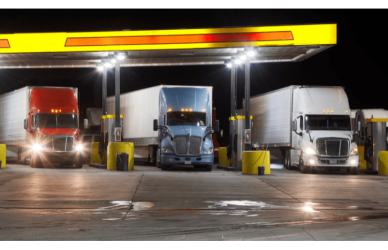A Silicon Valley pitch with the phrase “it’s Uber for…”, with people filling in the blank, is likely to be met with skepticism, but when Uber Freight’s Lior Ron says “Uber for trucks”, ears begin to listen. Ron is the CEO of Uber Freight, the tech company’s logistics subsidiary. According to McKinsey, in 2017 Uber Freight was launched as an autonomous business division within Uber, connecting shippers to carriers with capacity. “We stand on the shoulders of a giant,” says Ron, whose team has raised more than $1 billion from external sources.
Ron’s mission is to “simplify logistics to help communities thrive” at a time when the trucking industry is beleaguered by rising fuel prices, worsening inefficiency, and an aging workforce. His strategy? A radical technology-first approach, which he believes fosters trust, reduces inefficiencies (and thus costs), and increases carriers’ earning potential. According to Ron, in a recent interview with McKinsey’s Vik Krishnan, the company has had to quickly acquire new capabilities and deepen its logistics understanding and expertise while maintaining the velocity and agility of a start-up. Continue reading to find out how Uber Freight did it and where Ron sees the company in five years.
Ron also believes that to “solve the massive challenge of digitizing the hundreds of millions of trucks that are moving in the U.S. every year, you need a way to equip all of these drivers with a mobile app.”
When asked where he sees Uber Freight in 5 years, he answered:
“In five years, I envision a true end-to-end platform for logistics, probably cloud based, where we are connected at scale with every carrier and every shipper and every warehouse across the world. We’ll have built a digital representation of the entire complex physical infrastructure. … This platform will also cover all transportation modes horizontally—rail, truck, and last mile—and with the Transplace acquisition, we’ll also have the most comprehensive vertical proposition.”
He is determined to apply a tech-first approach to the market to further advance the trucking industry.








